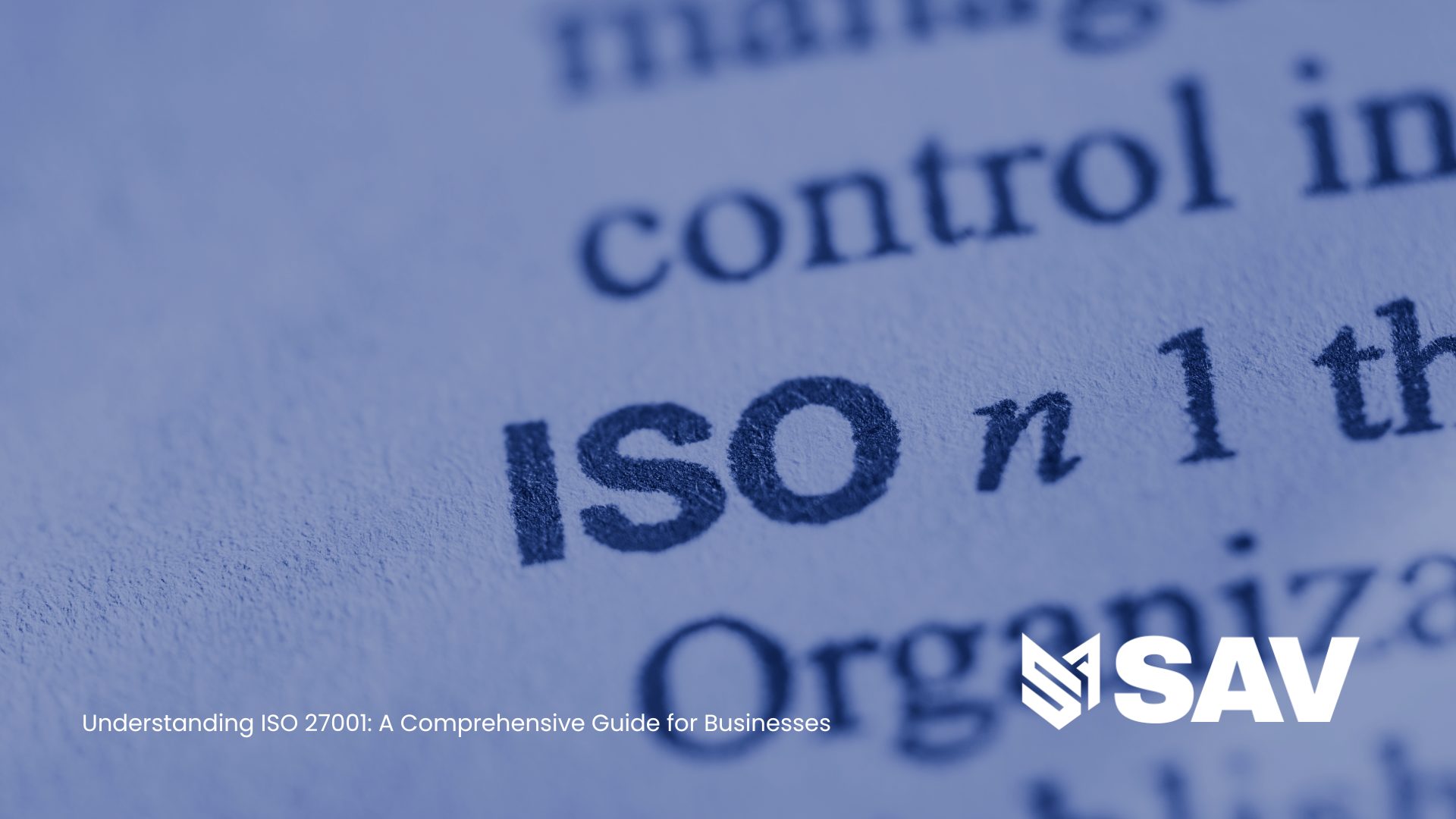What is SOC 1 (System and Organization Control 1)?
What is SOC 1 (System and Organization Control 1)?
Understanding ISO 27001: A Comprehensive Guide for Businesses

In today’s digital landscape, data security is more critical than ever. With the rise in cyber threats and data breaches, businesses must prioritize the protection of their sensitive information. One effective way to ensure robust information security management is by adopting the ISO 27001 standard. This guide will provide you with a comprehensive overview of ISO 27001 and its benefits for businesses.
What is ISO 27001?
ISO 27001 is an international standard that outlines best practices for an information security management system (ISMS). Published by the International Organization for Standardization (ISO), this standard provides a systematic approach to managing sensitive company information, ensuring its confidentiality, integrity, and availability.
Key Components of ISO 27001
- Information Security Management System (ISMS): At the core of ISO 27001 is the ISMS, a framework that helps organizations manage their information security practices. An effective ISMS involves identifying potential security threats, assessing risks, and implementing controls to mitigate those risks.
- Risk Assessment and Treatment: ISO 27001 requires businesses to conduct regular risk assessments to identify vulnerabilities and threats to their information assets. Once risks are identified, organizations must implement appropriate controls to address them. This process ensures that security measures are tailored to the specific needs and risks faced by the organization.
- Leadership and Commitment: Successful implementation of ISO 27001 requires strong leadership and commitment from top management. Leaders must actively support and promote information security initiatives, allocate necessary resources, and ensure that security policies and procedures are effectively communicated throughout the organization.
- Documentation and Policies: ISO 27001 mandates the creation and maintenance of comprehensive documentation, including information security policies, procedures, and guidelines. Proper documentation ensures that all employees understand their roles and responsibilities concerning information security.
- Continuous Improvement: ISO 27001 promotes a culture of continuous improvement in information security practices. Organizations are required to regularly review and update their ISMS to address new threats, changes in the business environment, and advancements in technology.
Benefits of ISO 27001 Certification
- Enhanced Information Security: By implementing ISO 27001, businesses can strengthen their information security practices, protecting sensitive data from unauthorized access, breaches, and other cyber threats. This enhances the overall security posture of the organization.
- Regulatory Compliance: ISO 27001 helps businesses comply with various legal and regulatory requirements related to data protection and information security. Achieving certification can demonstrate compliance with regulations such as GDPR, HIPAA, and other industry-specific standards.
- Increased Customer Trust: Certification to ISO 27001 provides assurance to customers and stakeholders that the organization is committed to protecting their information. This can enhance customer trust and confidence, leading to improved business relationships and a competitive edge in the market.
- Reduced Risk of Data Breaches: A well-implemented ISMS can significantly reduce the risk of data breaches and cyber incidents. By proactively identifying and addressing potential vulnerabilities, organizations can minimize the impact of security breaches and avoid costly consequences.
- Improved Business Resilience: ISO 27001 helps businesses develop a robust information security framework that can withstand and recover from security incidents. This resilience can contribute to business continuity and minimize disruptions in operations.
Steps to Achieve ISO 27001 Certification
- Gap Analysis: Conduct a thorough assessment of your current information security practices to identify gaps and areas for improvement.
- Develop an ISMS: Design and implement an ISMS based on ISO 27001 requirements, including risk assessment, control implementation, and documentation.
- Training and Awareness: Provide training and raise awareness among employees about information security policies, procedures, and their responsibilities.
- Internal Audit: Perform internal audits to evaluate the effectiveness of the ISMS and identify areas for improvement.
- Certification Audit: Engage a certified external auditor to assess your ISMS against ISO 27001 standards. Address any non-conformities and achieve certification.
- Continuous Monitoring: Continuously monitor and review your ISMS to ensure ongoing compliance and effectiveness. Implement corrective actions as needed.
Conclusion
ISO 27001 provides a comprehensive framework for managing information security and protecting sensitive data. By adopting this standard, businesses can enhance their security practices, ensure regulatory compliance, and build trust with customers. Achieving ISO 27001 certification requires commitment, effort, and continuous improvement, but the benefits far outweigh the investment. For businesses looking to bolster their information security, ISO 27001 is a valuable and strategic asset.
If you have any questions or need assistance with ISO 27001 implementation, feel free to reach out to our team at SAV Associates. We’re here to help you navigate the complexities of information security and achieve your certification goals.
Follow us for the latest updates
SAV Associates is on your Side
By partnering with SAV Associates, you gain access to a team of experts dedicated to ensuring your business’s financial health and compliance, allowing you to focus on achieving your business objectives.




